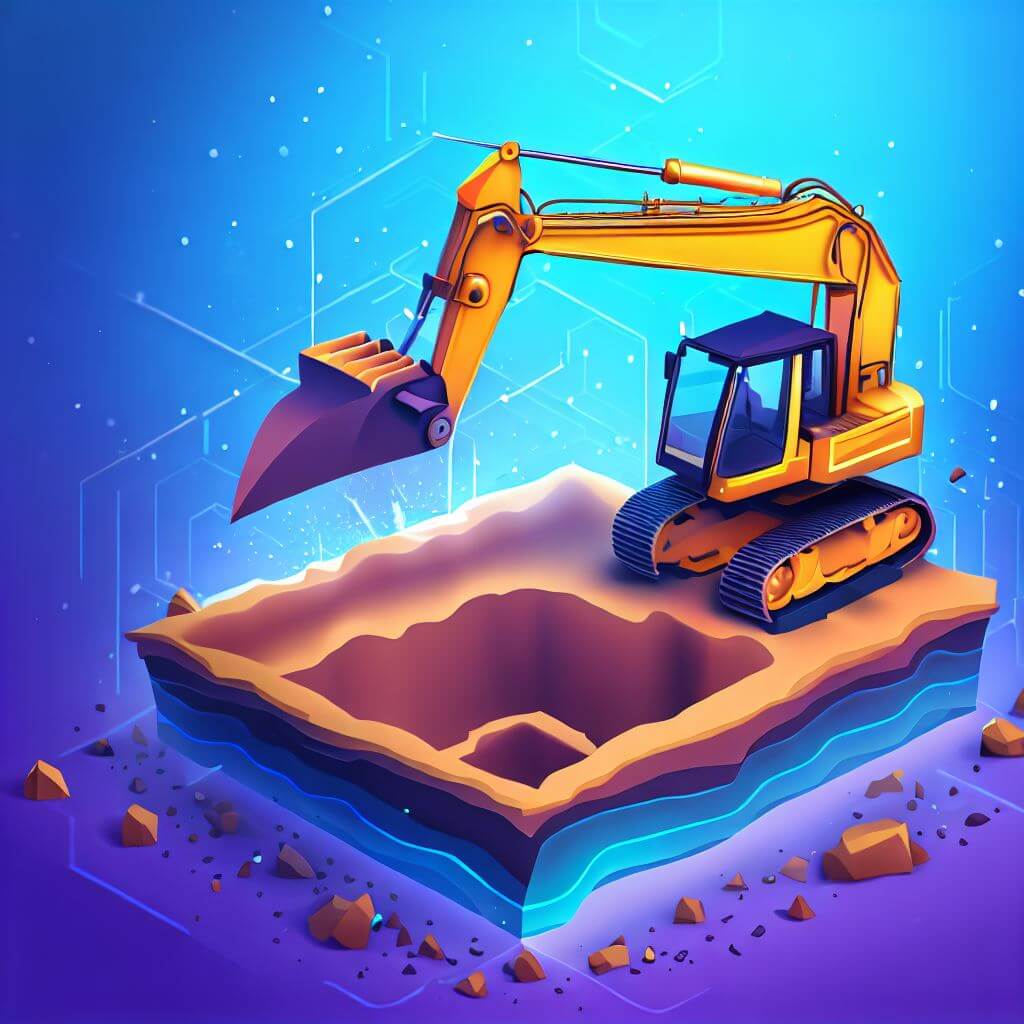
Impacts of DifferentTypes of Excavation Equipment on Costs
Key Takeaways:
| Key Takeaways |
|---|
| Proper selection of excavation equipment is crucial for cost-effective and efficient projects. |
| Understanding the role and capabilities of different equipment types is essential. |
| Factors like project size, soil conditions, and budget influence equipment choices. |
| Equipment costs include purchase or rental expenses, maintenance, fuel, and labor. |
| Case studies illustrate how equipment choices affect project outcomes. |
Introduction
Welcome to J Hodge Enterprises, your trusted partner in excavation services in Georgia. Whether you’re a seasoned construction professional or a homeowner planning an excavation project, understanding the various types of excavation equipment and their impact on costs is vital. In this comprehensive article, we’ll explore the world of excavation equipment, shedding light on the different types available, the factors influencing equipment choices, and the cost considerations associated with each option. Armed with this knowledge, you’ll be better equipped to make informed decisions that optimize both efficiency and budget for your excavation projects.
The Role of Excavation Equipment
Why Excavation Equipment Matters
Excavation equipment plays a pivotal role in the success of any excavation project. These heavy machines are designed to handle a wide range of tasks, from digging and trenching to grading and earthmoving. Here’s why their role is so crucial:
- Efficiency and Productivity: Specialized excavation equipment is designed to perform tasks quickly and efficiently, reducing the time required to complete a project.
- Precision: Modern equipment offers precise control, ensuring that excavation work is done accurately, minimizing the risk of errors.
- Safety: Using the right equipment for the job enhances safety on the worksite by reducing the likelihood of accidents or injuries caused by equipment limitations.
- Cost Control: Proper equipment selection can significantly impact the overall cost of a project, making it an essential consideration for project planners and contractors.
Read more on the role of excavation equipment here!
Common Types of Excavation Equipment
Excavators
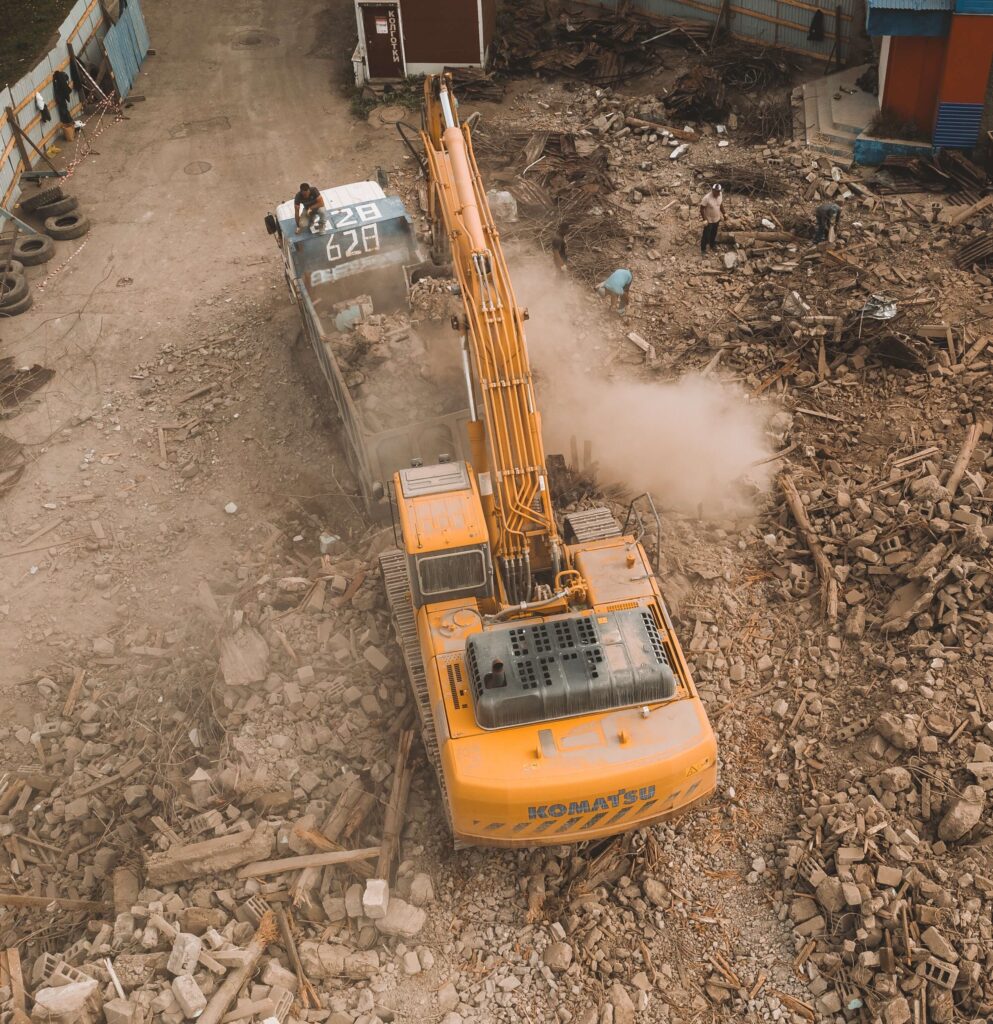
Excavators are versatile machines equipped with a bucket, boom, and cab. They are commonly used for digging, lifting, and placing materials. Excavators come in various sizes, from compact mini-excavators suitable for small residential projects to large hydraulic excavators for industrial-scale jobs.
Key Features:
- 360-degree rotation for maximum maneuverability.
- Different attachments are available for various tasks, such as buckets, grapples, and hydraulic breakers.
- Excellent digging depth and reach.
Backhoes
Backhoes are smaller machines equipped with a digging bucket on the front and a loader bucket on the back. They are ideal for projects that require both digging and material handling. Backhoes are commonly used in urban areas and for smaller excavation jobs.
Key Features:
- Compact and versatile, making them suitable for confined spaces.
- Dual functionality for digging and loading.
- Often used for trenching and utility installation.
Bulldozers
Bulldozers are heavy, tracked machines with a large, flat blade at the front. They are primarily used for grading, leveling, and pushing large quantities of soil, sand, or debris. Bulldozers are invaluable for site preparation and land clearing.
Key Features:
- High tractive power for pushing heavy materials.
- Excellent stability on uneven terrain.
- Blade adjustments for precise grading.
Loaders
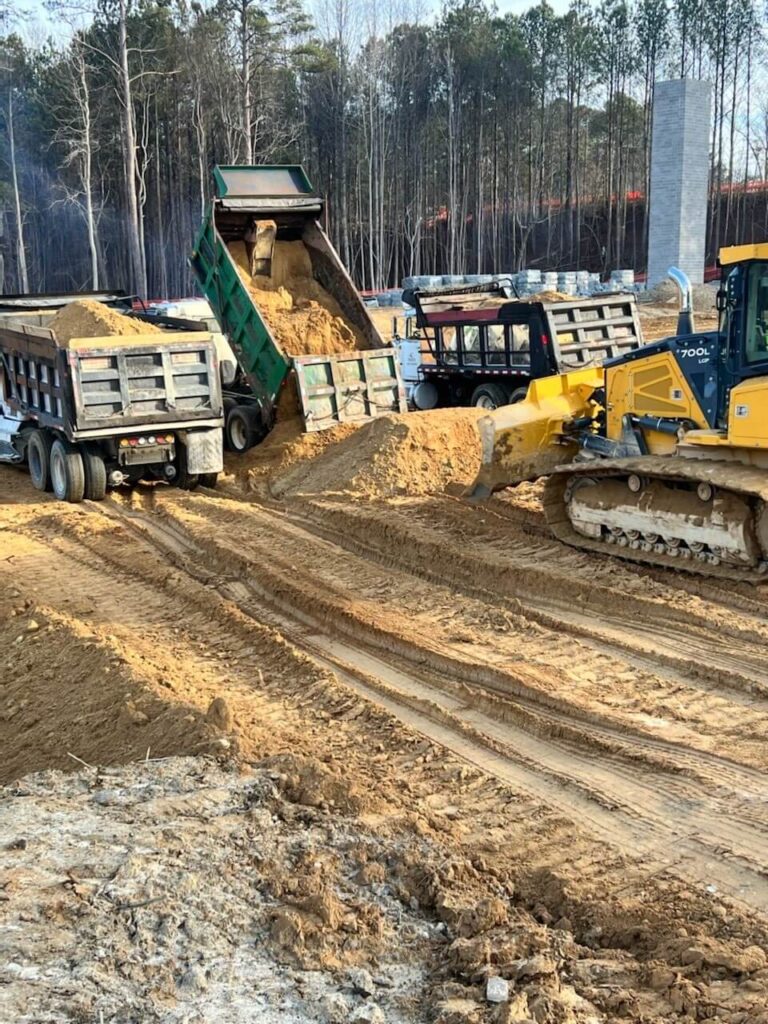
Loaders, also known as front-end loaders, are wheel-mounted machines with a front bucket. They excel at loading and transporting materials such as gravel, sand, and construction debris. Loaders come in various sizes, from compact to large.
Key Features:
- Quick and efficient material handling.
- Versatile attachments for different tasks.
- Easy maneuverability on flat surfaces.
Skid Steer Loaders
Skid steer loaders are compact, versatile machines with a small turning radius. They are commonly used in tight spaces and are known for their agility. Skid steer loaders have lift arms for various attachments, making them adaptable to different tasks.
Key Features:
- Compact size for maneuvering in confined areas.
- Quick attachment changes for versatility.
- Excellent stability and balance.
Trenchers
Trenchers are specialized machines designed for digging trenches, typically for utilities like water lines, electrical cables, or drainage systems. They come in different types, including chain trenchers and wheel trenchers, each suited to specific soil conditions.
Key Features:
- Precise digging depth control.
- Various trench widths are available.
- Efficient for laying underground utilities.
Understanding the capabilities and features of these common excavation equipment types is essential when planning any excavation project. However, the choice of equipment isn’t solely based on their features; various factors must be considered to ensure cost-effective and efficient operations.
Factors Influencing Equipment Choice
Project Size and Scope
The size and scope of your excavation project are fundamental factors in equipment selection. Here’s how they matter:
- Small Residential Projects: For small-scale residential projects like landscaping or pool installation, compact equipment such as mini-excavators or skid steer loaders may be more suitable due to their maneuverability and minimal site disruption.
- Medium-Sized Projects: Projects like foundation excavation or small commercial construction benefit from versatile machines like backhoes and mid-sized excavators that balance power and maneuverability.
- Large-Scale Industrial Projects: For substantial projects like highway construction or large commercial developments, heavy-duty equipment like hydraulic excavators and bulldozers are essential due to their high productivity and capacity.
Soil Type and Conditions
The composition and condition of the soil on your construction site can greatly impact equipment choice:
- Rocky Terrain: Projects on rocky terrain may require equipment with specialized attachments like rock breakers. Hydraulic excavators with robust buckets are often preferred.
- Soft or Wet Soil: In areas with soft or wet soil, tracked equipment like bulldozers or track-mounted excavators provide better stability and reduce the risk of getting stuck.
- Mixed Soil Conditions: For sites with varying soil types, versatile equipment like backhoes or wheel loaders can adapt to different conditions.
Accessibility and Site Constraints
Consider the accessibility of your site and any specific constraints that may affect equipment choice:
- Tight Spaces: Projects in urban areas or confined spaces may require compact equipment like mini-excavators or skid steer loaders to navigate through narrow passages.
- Low Overhead Clearance: Sites with low overhead clearance may necessitate equipment with a vertical reach, like long-reach excavators or knuckle boom loaders.
- Environmental Concerns: In sensitive environments, such as wetlands, equipment with low ground pressure, like rubber-tracked excavators, minimizes environmental impact.
Budget Constraints
Budget considerations are always paramount. Equipment costs include both upfront expenses and ongoing operational expenses. These factors influence your overall project budget:
- Purchase vs. Rental: Consider whether it’s more cost-effective to purchase the equipment outright or to rent it for the duration of your project. Rental may be preferable for short-term or occasional use.
- Maintenance Costs: Factor in ongoing maintenance costs, including servicing, repairs, and spare parts, when evaluating the long-term cost of equipment ownership.
- Fuel Efficiency: Fuel consumption varies between equipment types. Choosing more fuel-efficient machines can result in significant savings over the course of a project.
By carefully assessing these factors, you can make informed decisions about the type of excavation equipment that best suits your project’s requirements while keeping costs in check. In the next section, we’ll delve deeper into the cost considerations associated with excavation equipment, helping you understand how your choices
For further insights and tools related to excavation project pricing, explore the following resources:
Cost Considerations
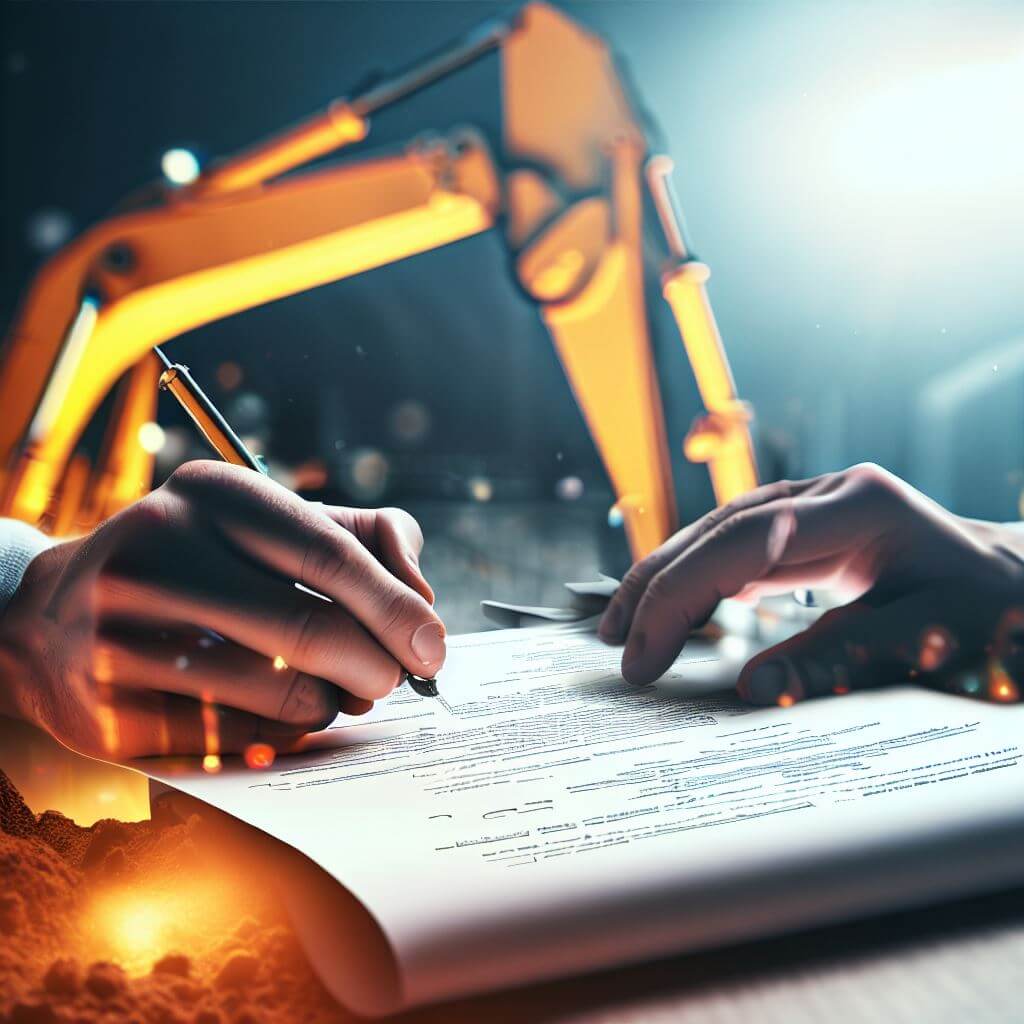
Selecting the right excavation equipment is not just about finding the most powerful or versatile machine. It’s also about managing the costs associated with the equipment throughout your project. Here, we’ll break down the various cost considerations you should keep in mind when choosing equipment:
Initial Purchase or Rental Costs
The upfront cost of acquiring excavation equipment can vary significantly depending on factors like the type of machine, its size, and whether you choose to purchase or rent it.
Key Points to Consider:
- Purchasing equipment may require a substantial upfront investment while renting can offer more flexibility for shorter-term projects.
- Smaller machines like mini-excavators or skid steer loaders are generally more affordable to rent or purchase compared to larger, heavy-duty equipment like hydraulic excavators or bulldozers.
- Evaluate your project’s duration and frequency of use to determine whether purchasing or renting is the more cost-effective option.
Operating and Maintenance Costs
Once you’ve acquired the equipment, you’ll need to budget for ongoing operating and maintenance expenses. These costs can significantly impact your overall project budget.
Key Points to Consider:
- Regular maintenance is essential to keep the equipment in optimal working condition. This includes oil changes, inspections, and addressing wear and tear.
- Maintenance costs can vary depending on the complexity of the equipment. For example, tracked machines may have different maintenance requirements than wheeled machines.
- Factor in the cost of replacement parts and repairs in your budget to minimize downtime and keep your project on track.
Fuel Consumption
Fuel consumption is a significant ongoing cost associated with excavation equipment. The fuel efficiency of the machine you choose can impact your project’s overall operating expenses.
Key Points to Consider:
- Larger equipment tends to consume more fuel. Hydraulic excavators and bulldozers, for instance, may have higher fuel costs compared to smaller machines.
- Consider the fuel consumption rate of the equipment and how it aligns with your project’s needs. Opting for more fuel-efficient machines can lead to long-term savings.
- Implement fuel management practices to optimize consumption and reduce costs. This includes regular maintenance to ensure efficient engine performance.
Labor Requirements
The choice of excavation equipment can also influence labor requirements. Different machines may require varying levels of operator expertise and the size of the crew needed to operate them effectively.
Key Points to Consider:
- Some equipment, like skid steer loaders, may be operator-friendly and require minimal training. Others, such as large hydraulic excavators, may demand skilled operators with experience.
- Assess the availability and expertise of your workforce when selecting equipment. Consider whether additional training or hiring skilled operators is necessary.
- Labor costs should be factored into your overall project budget, as the number of operators and their skill levels can impact the project’s timeline and costs.
In conclusion, understanding the cost considerations associated with excavation equipment is vital for effective project planning. By carefully evaluating initial purchase or rental costs, ongoing operating and maintenance expenses, fuel consumption, and labor requirements, you can make informed decisions that align with your project’s budget and goals. In the next section, we’ll explore real-life case studies to illustrate how these cost considerations translate into actual project outcomes.
- Excavation Cost Calculator: Use our online calculator to estimate excavation project costs based on your specific requirements.
FAQs
The type of soil on your construction site can significantly influence your choice of excavation equipment. Rocky terrain may require equipment with specialized attachments, while soft or wet soil benefits from machines with enhanced stability. Understanding your soil conditions is crucial for selecting the right equipment and optimizing project costs.
Yes, renting excavation equipment can be a cost-effective choice for short-term projects. It eliminates the need for a substantial upfront investment and allows you to access specialized machinery without the long-term commitment of ownership. Rental options cater to various project durations, making them a flexible solution for managing project costs.
To optimize fuel consumption, consider the following strategies:
Choose equipment that aligns with your project’s size and requirements to avoid overusing larger, fuel-intensive machines.
Implement regular maintenance to ensure engines operate efficiently.
Train operators to use equipment economically, avoiding unnecessary idling or high-speed operation.
Utilize fuel management systems and technologies to monitor consumption and identify areas for improvement.
Read More
Learn how much it costs to Excavate Land
- DIY vs. Professional Excavation: Cost Analysis and Considerations
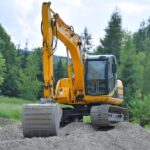 Excavation projects are crucial for various construction and landscaping endeavors, …
Excavation projects are crucial for various construction and landscaping endeavors, …DIY vs. Professional Excavation: Cost Analysis and Considerations Read More »
- Regional Variations in Excavation Costs: What to Expect
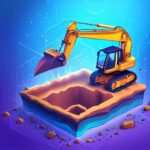 Key Takeaways: Key Takeaways 1. Understanding Regional Variations: Recognize that …
Key Takeaways: Key Takeaways 1. Understanding Regional Variations: Recognize that …Regional Variations in Excavation Costs: What to Expect Read More »
- Types of Excavation Equipment and Their Impact on Costs
 Key Takeaways: Key Takeaways Proper selection of excavation equipment is …
Key Takeaways: Key Takeaways Proper selection of excavation equipment is …Types of Excavation Equipment and Their Impact on Costs Read More »
- Comparing Excavation Pricing: Hourly Rates vs. Fixed Contracts
 Introduction In the world of excavation, comparing excavation hourly rates …
Introduction In the world of excavation, comparing excavation hourly rates …Comparing Excavation Pricing: Hourly Rates vs. Fixed Contracts Read More »
- Excavation Cost Estimation Methods: From Quotes to Budgeting
 At J Hodge Enterprises, we understand that one of the …
At J Hodge Enterprises, we understand that one of the …Excavation Cost Estimation Methods: From Quotes to Budgeting Read More »
